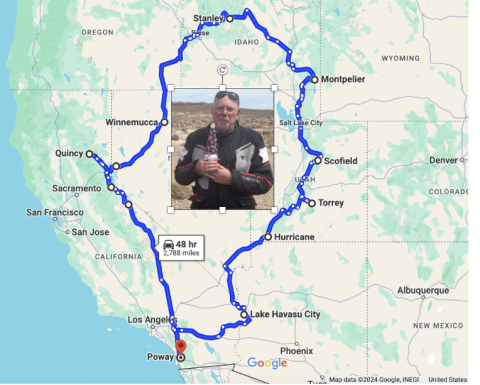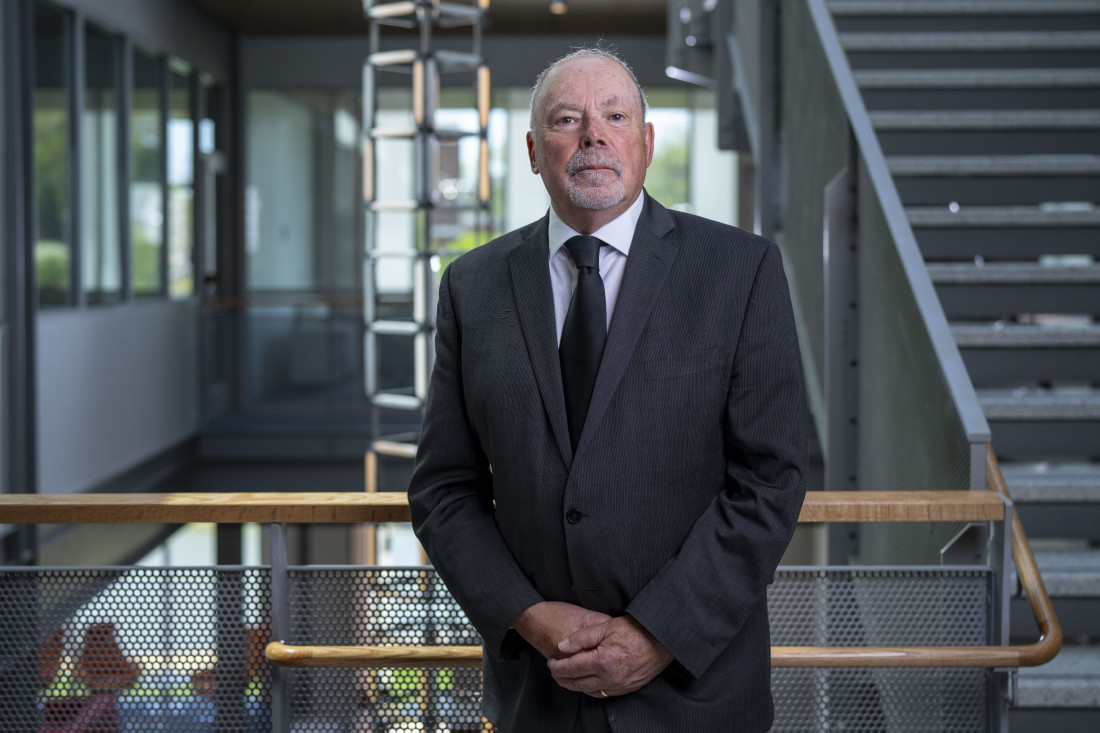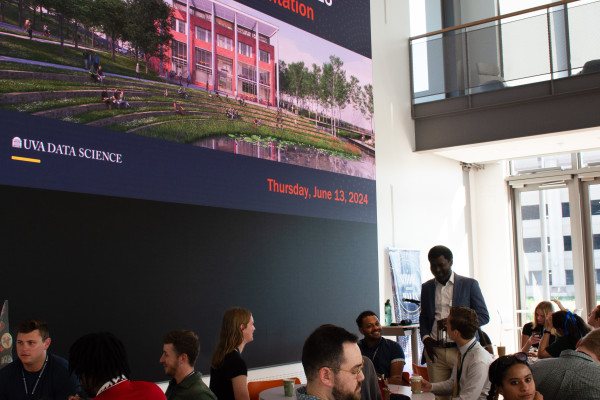
Dean's Blog: The Human in the Loop

I have just completed a 3000-mile motorcycle journey that started and ended in San Diego. The loop took me up the west side of the Rocky Mountains, through Arizona, Nevada and Utah, across Idaho and down the east side of the Sierra Nevada Mountains through Oregon and California.
It is part of my quest to undertake Great Motorcycle Journeys of the World. You have a lot of time for contemplation when solo motorcycling, and I thought a lot about the “human in the loop,” since I literally was one. To be clear, when I say solo that does an injustice to Boo, brother of Leane (aka Boolean), our school mascot (a gnome) who now accompanies me on my annual motorcycle trips, but does not say much.
Away from the day-to-day hubris, it is fun to let your mind wander and I contemplated what the trip would be like if all I was confronted with was AI to accompany me, or that the trip was a simulation generated by AI. These were depressing thoughts.
My bike mate for much of the journey was my friend and former colleague, Rob, who I have known for 40-plus years when we were postdoctoral fellows together in Sheffield, UK.
Sure, we have changed physically, but much of what made us friends then, and now, is our mental connection. How, in the same way, we both see the world with all its beauty and its quirks. Could that be learnt and simulated so a riding partner was not needed —
The connection is more than what we say to one another —
We camped on the trip and rediscovered our respective habits: Rob, ordered and tidy; me, just shove it in the bag. Could that be learnt and simulated? Probably. During the trip, Rob became a bit more like me and I a bit more like Rob. Could that be simulated? Maybe, but how far to go?
I had purchased the most ridiculous set of camping utensils that we laughed at since you would not use most of them in a gourmet kitchen let alone in a campground. Could that mistake be simulated and create a sense of ridiculousness? Why would you?
Then there are the people you meet serendipitously as you ride the back roads. There was the odd character I met in Winnemucca, Nevada, who asked if I was carrying a gun. And the nice pickleball-playing couple from Mount Shasta I met in Quincy, California, with proud wrist and knee injuries reflecting their skill at the game.
Rebecca, the lead singer of Dirty Cello, a band I snuck into by virtue of being in a bar adjoining the theater and who, after the show, complimented me on my resourcefulness.

Could you simulate such encounters? Maybe.
Then there are the events, the man-eating flies in the middle of the desert on route 95 that when I deterred them with bug spray attacked the dead insects that coated the front of my motorcycle. Breaking down in the middle of nowhere and that terrible sinking feeling knowing the nearest motorcycle store is hundreds of miles away, only to be elated when it's just a loose battery cable. Could this be simulated? Maybe.
Collectively, it could all be put into a video game-like simulation. How depressing would that be? Never to experience the incredible scenery first-hand, nor the hot wind of the desert on your face as you ride along at 70 mph, nor the smell of a dead animal somewhere off the road. But wait a minute, have we not done some of that already with video games that already exist?
When we think of AI and the human in the loop it is usually associated with ethical concerns, or wellbeing and safety, but I realized on this trip we need to think about what AI takes away from being human. Potentially, it's just repeating history on steroids. Look what the internet, social media, and video games have done already. Amazingly good, but for some it has taken away a part of what it means to be human.
We should have realized this much earlier in the development of these applications. but it all happened so fast.
But wait, AI is moving at an even greater speed. I came back thinking we have a lot to do to avoid the perils of AI while taking full advantage of what it has to offer. We need the human in the loop, and I will prove it as I plan next summer’s motorcycle journey and contemplate what we do as a school —
